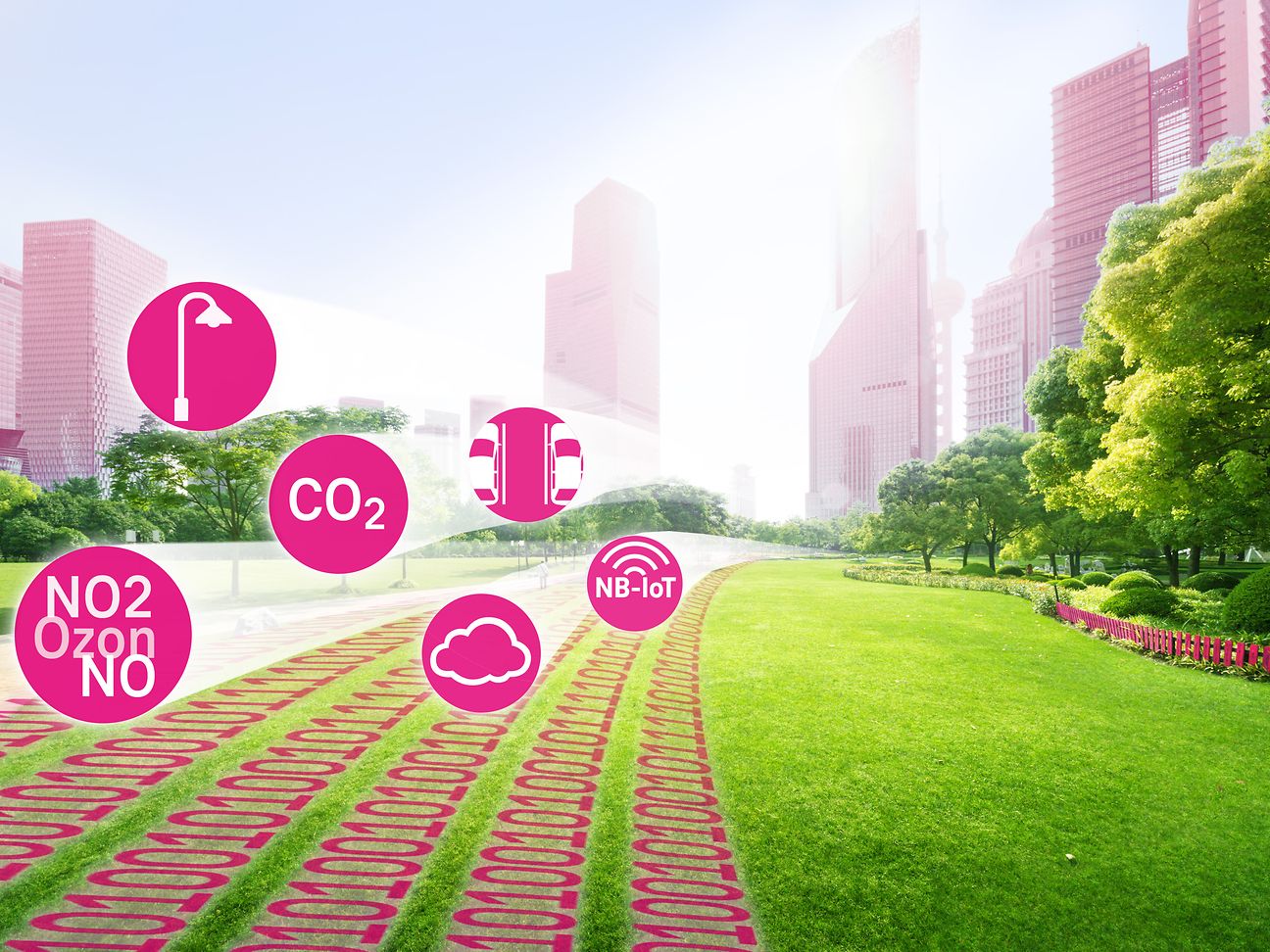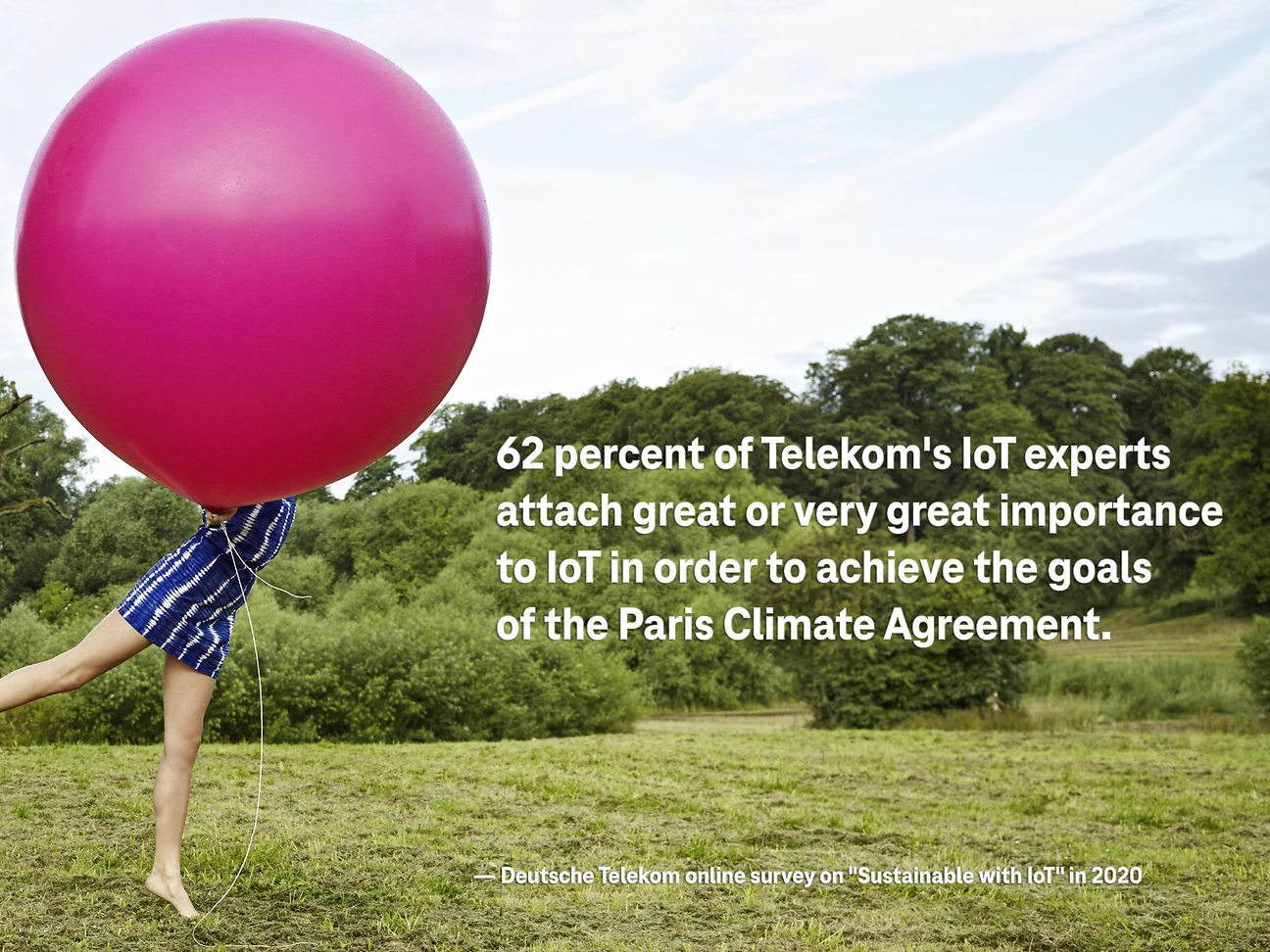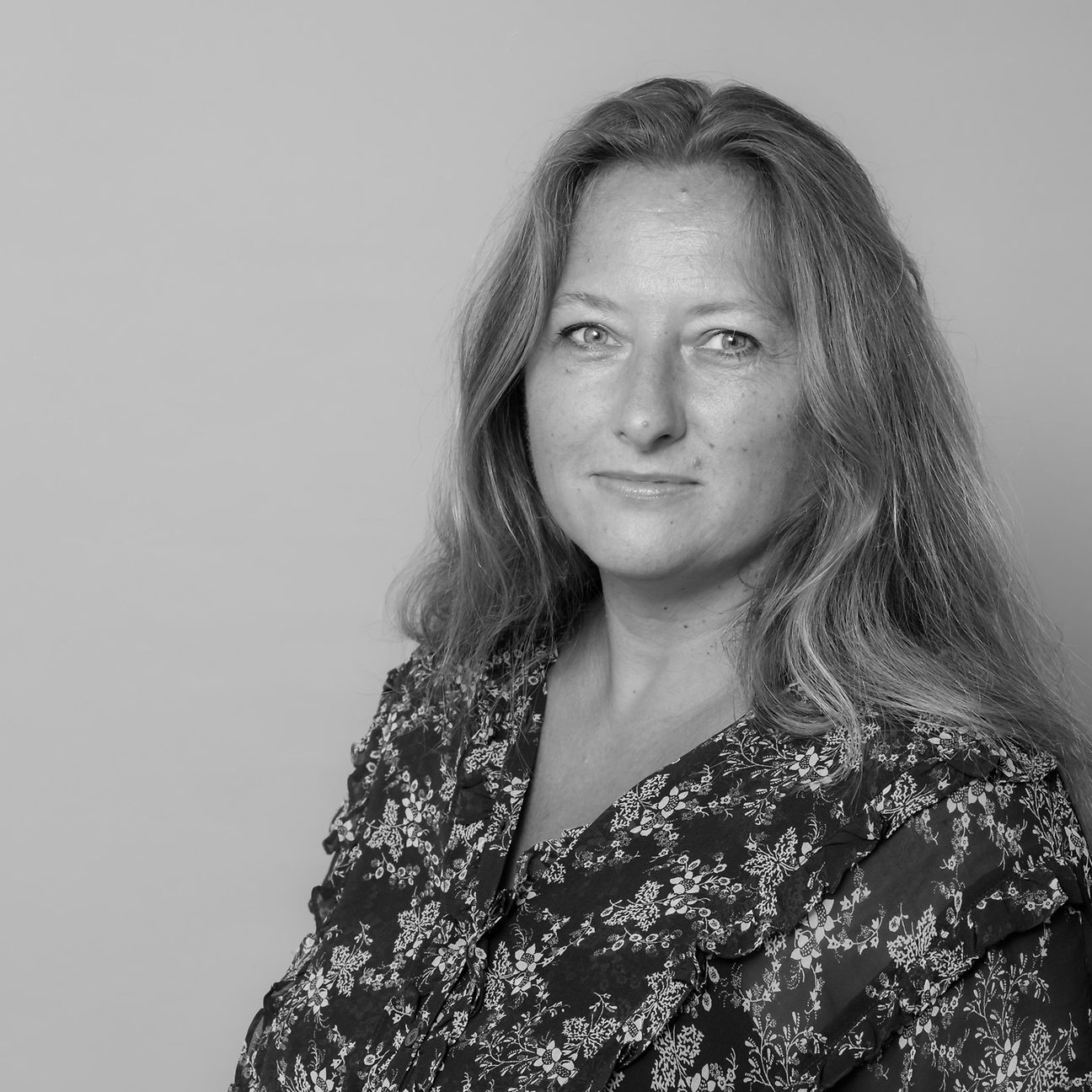

Happy sustainable city life
The trend is unbroken: people are drawn to the cities. More than half of the world's population of around 7.7 billion people now live in cities. For the year 2050, the UN expects a share of 68 percent. In Germany today, three out of four citizens already live in cities. In 30 years, this figure will be around 85 percent.
This is a worrying numbers game that is keeping urban planners around the world busy. They are faced with the task of ensuring that urban living space remains attractive and functional for citizens and as a business location. There can be no doubt: without good air quality, low CO2 emissions and careful use of resources, it is not possible. Digital solutions support sustainable coexistence in the networked city, the so-called Smart City, in a variety of ways. This is also the view of Telekom IoT experts*: In the latest Telekom survey, they were asked about the "Internet of Things and Sustainability". 62 percent believe that the Internet of Things (IoT) is important or very important for achieving the goals of the Paris Climate Agreement.
But what does that look like in practice?
Move greener
Concepts for intelligent, networked mobility are now more in demand than ever. The municipal election has recently shown that this is the case: The car-free inner city is at the top of the agenda for most politicians. Until then, IoT applications such as Smart Parking with its app will provide initial relaxation for motorists, residents and air quality values. Are there free parking spaces at my destination? Sensors installed in the parking areas transmit their status via the NarrowBand IoT machine and sensor network, with low energy consumption but a long range. This saves fuel, noise and pollutant emissions. Payment is also made simply via App.
Measurably greener
Less exhaust fumes - better air: success is easy to see with sensors for air quality measurement. Built-in sensors, preferably on the most important roads specially to parking areas in city centers, test the air for certain gases and particles. Computers in a computer center calculate the measured values from the incoming data. The individual courses of the measured values are documented. This enables cities to check their air pollution control plans.
Smart lighting on, light off!
In addition to polluted air, a completely different type of pollution is becoming more and more apparent: increasing lighting around the globe. The human organism reacts with sleep disorders, stress or even depression. Also, the natural day and night rhythm of our animal world is disturbed in the long run. Food chains are destroyed. In addition, there is an unnecessarily high energy consumption of this light pollution. Often the illumination is not optimally adapted to the prevailing conditions and requirements: too bright, not targeted and not properly shielded. This costs money and leads to increased CO2 emissions. With the use of intelligent illuminants, Smart Lighting, the negative impact on people and the environment can be effectively reduced.
Together.Green.Cross-linked.
Digital, smart support for a healthier, more sustainable coexistence is therefore available. A "green" image is increasingly desirable and is developing into an important location factor. Bitkom's current Smart City Index shows how digital Germany's cities already are. According to Bitkom, it is not only financial strength that counts. A successful transformation is based on a comprehensive digital strategy integrated into urban development. This is precisely where Telekom's co-creation concept comes in. The core of the concept: The road to the Smart City is not only an organizational change, but also a cultural one. It is not just the representatives from administration, politics and business who decide which measures are to be implemented first: the citizens themselves take part in this assessment and actively shape the future of their city. As a place of genuine co-determination and democracy.
This is the only way to be happy together in the digital city of tomorrow. Telekom has also been actively involved in climate protection since the 1990s. Today, Deutsche Telekom customers already surf exclusively on the "green network". The Group's entire electricity requirements in Germany are already covered 100 percent by renewable energies.


